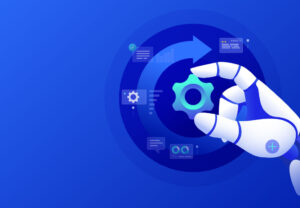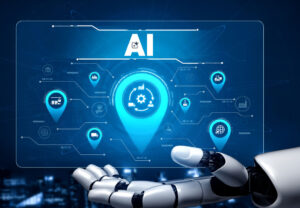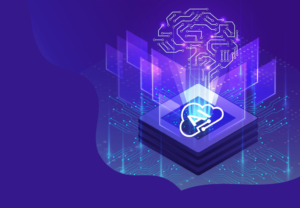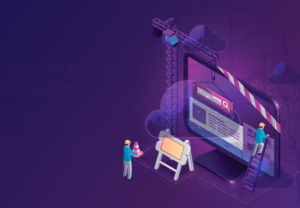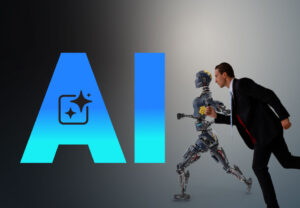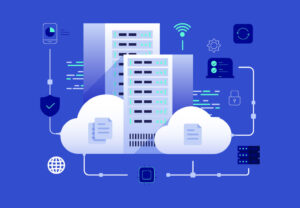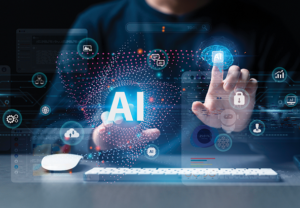Closing the Gap: Strategies for Cultivating an AI-Ready Enterprise
“Singapore’s position as the world’s second-ranked nation in AI readiness masks a critical challenge: the widening gap between AI talent demand and supply. While the nation excels in regulatory frameworks and adoption, generative AI upskilling Singapore initiatives must accelerate to meet enterprise needs. Through strategic workforce planning for AI and cultivating AI culture in enterprise environments, organisations can build sustainable competitive advantages. The future of work demands requires a comprehensive CTO guide to AI talent development, supported by building an AI Centre of Excellence Singapore model. Enhanced AI literacy for executives SG becomes paramount as enterprises navigate this transformative landscape.”
Singapore stands at a pivotal juncture in the global artificial intelligence landscape. Ranked second globally in AI readiness according to Salesforce’s 2025 Global AI Readiness Index, the nation has established itself as a formidable force in regulatory preparedness and AI adoption. With a score of 26.5 out of 50, Singapore trails only the United States (39.7) whilst significantly outpacing regional competitors. However, beneath this impressive ranking lies a fundamental challenge that threatens to constrain the nation’s AI ambitions: the acute shortage of skilled AI practitioners. [21]
The demand for AI expertise, particularly in generative AI, is outstripping supply at an unprecedented rate. This skills deficit has elevated workforce transformation from an operational concern to a board-level imperative. Technology leaders across Singapore’s enterprise landscape recognise that sustainable competitive advantage requires more than isolated AI pilots; it demands comprehensive, enterprise-wide AI capabilities supported by strategically developed talent pipelines.
The core leadership insight driving this transformation centres on a critical reality, whilst Singapore’s regulatory frameworks and adoption mechanisms excel, innovation capacity and talent development represent the primary constraints to achieving the nation’s AI potential. Addressing this challenge requires sophisticated strategies that integrate leadership commitment, systematic upskilling programmes, robust technological foundations, and collaborative ecosystems that bridge industry, academia, and government initiatives.
The AI Imperative for Enterprises in Singapore
Market Context
Singapore’s AI readiness extends beyond mere rankings to encompass substantial strategic investments and policy commitments that create favourable conditions for enterprise AI transformation. The National AI Strategy 2.0 represents a significant escalation in governmental commitment, allocating $740 million USD investment over five years, with $111 million USD allocated to the Enterprise Compute Initiative. This investment framework signals recognition that AI transformation requires sustained, large-scale resource allocation rather than incremental funding approaches. [22]
Current adoption patterns reveal both opportunity and challenge within Singapore’s enterprise ecosystem. Research indicates that 68% of businesses remain in early phases of AI adoption, suggesting substantial untapped potential for organisations that can successfully navigate the transformation process. Leading sectors including financial services, healthcare, and manufacturing demonstrate varying degrees of AI integration, with financial services organisations such as DBS Bank and OCBC achieving notable success in scaled AI deployment. [23]
The regulatory environment provides additional competitive advantages for Singapore-based enterprises. Strong data protection frameworks, clear AI governance guidelines, and proactive regulatory engagement create conditions that enable responsible AI development whilst maintaining compliance requirements. This regulatory clarity reduces implementation uncertainty and allows enterprises to focus resources on capability development rather than regulatory navigation. [5] [19] [4] [14]
Leadership Perspective
Contemporary technology leadership in Singapore reflects a fundamental shift from experimental AI initiatives towards comprehensive, enterprise-wide capability development. This evolution recognises that sustainable AI competitive advantage requires systematic transformation rather than isolated use case deployment. Leaders increasingly focus on building organisational AI fluency that spans technical capabilities, process integration, and cultural adaptation. [6] [9]
The skills bottleneck presents the most significant constraint to this ambition. Current data indicates that 39% of large enterprises struggle to identify suitable AI talent, with high salary expectations and limited qualified candidate availability representing primary barriers. This talent scarcity forces organisations to develop internal capability-building strategies rather than relying solely on external recruitment approaches. [24]
Strategic priorities for Singapore’s technology leaders increasingly emphasise systematic workforce development programmes that build AI capabilities across organisational levels. Rather than concentrating expertise within specialised teams, leading organisations distribute AI knowledge throughout their workforce, creating broader organisational capacity for AI-driven innovation and implementation.
Understanding the Skills Gap: Realities and Risks
The Talent Crunch
Singapore’s AI workforce expansion objectives highlight the scale of the talent challenge facing enterprises. The nation aims to triple its AI practitioner base to 15,000 professionals, representing ambitious growth that significantly exceeds current supply trajectories. This target encompasses diverse roles including machine learning engineers, generative AI specialists, data scientists, and AI infrastructure specialists, each requiring distinct skill sets and development pathways. [9] [6]
High-demand roles reflect the evolving nature of enterprise AI requirements. Machine learning engineers command premium compensation packages whilst remaining in short supply, particularly those with experience in production AI system deployment. Generative AI specialists represent an emerging category with limited experienced practitioners but rapidly expanding demand across industries. Data scientists continue to experience strong demand, though requirements increasingly emphasise business application capabilities alongside technical expertise.
DBS Bank’s workforce transformation programme illustrates both the scale and complexity of enterprise AI capability development. The organisation identified 13,000 employees requiring reskilling or upskilling to support AI integration across business functions. More than 10,000 employees have enrolled in AI and data learning pathways, representing one of the region’s most comprehensive enterprise AI education initiatives. The bank’s AI-driven HR tools, including the OneBot system, demonstrate practical applications of AI technology whilst reducing support workload and improving employee satisfaction metrics. [9] [25] [26] [27]
Root Causes of the Gap
The skills shortage stems from multiple interconnected factors that require coordinated responses rather than isolated interventions. Fragmented upskilling efforts across industries and organisations result in duplicated resources and inconsistent capability development. Many enterprises pursue independent training programmes without leveraging shared resources or standardised competency frameworks, reducing overall efficiency and effectiveness. [7] [20] [24]
Limited AI fluency at senior executive levels constrains organisational AI transformation capabilities. Senior leaders without adequate AI literacy struggle to make informed strategic decisions regarding technology investments, talent development priorities, and transformation timelines. This knowledge gap creates bottlenecks in resource allocation and strategic direction-setting that cascade throughout organisations.
Insufficient collaboration between industry, academia, and government institutions limits the effectiveness of talent development initiatives. Academic programmes often lag industry requirements whilst industry training programmes lack the theoretical foundations that support long-term capability development. Government initiatives, whilst well-intentioned, sometimes operate independently of industry needs or academic capabilities, reducing overall ecosystem effectiveness.

AI-Readiness: Frameworks and Benchmarks
Assessing Organisational Readiness
Comprehensive AI readiness assessment requires structured frameworks that evaluate multiple dimensions of organisational capability. The AI Readiness Index (AIRI) framework provides systematic evaluation across four critical pillars: leadership commitment, data infrastructure, technological capabilities, and talent development. Each pillar encompasses specific metrics and benchmarks that enable organisations to identify gaps and prioritise improvement initiatives. [5] [21]
Leadership assessment examines executive commitment to AI transformation, including board-level sponsorship, strategic alignment, and resource allocation patterns. Organisations with strong leadership pillar performance demonstrate clear AI vision statements, dedicated AI leadership roles, and consistent investment in AI capability development over multi-year periods.
Data infrastructure evaluation encompasses data quality, accessibility, governance frameworks, and integration capabilities. Strong performance in this pillar indicates robust data management practices, clear data ownership structures, and technological infrastructure capable of supporting AI model development and deployment at scale.
The Boston Consulting Group’s “Five Must-Haves” framework provides complementary assessment criteria focused on practical implementation requirements. These five elements include needs assessment and outcome measurement capabilities, change management preparation, learning incentive structures, C-suite leadership engagement, and AI-enabled training methodologies. Organisations achieving excellence across these dimensions demonstrate higher success rates in AI transformation initiatives. [8]
The World Economic Forum’s enterprise AI transformation stages offer additional benchmarking criteria that trace organisational evolution from initial experimentation through comprehensive transformation. These stages help organisations understand their current position and identify next-step requirements for advancement. [17] [28]
Singapore vs. Regional Leaders
Singapore’s enterprise AI leaders demonstrate capabilities that exceed regional benchmarks across multiple performance dimensions. DBS Bank exemplifies comprehensive AI integration with more than 350 active AI use cases, 9,000 trained staff members, and 700 dedicated data scientists. This scale of AI deployment significantly exceeds typical regional benchmarks and demonstrates the potential for Singapore-based organisations to achieve AI leadership positions. [6]
OCBC Bank and Singtel represent additional examples of Singapore enterprises achieving regional AI leadership through systematic capability development and strategic investment. These organisations demonstrate how consistent focus on talent development, technological infrastructure, and cultural transformation enables sustained competitive advantages in AI-driven markets. [6]
Comparative analysis across ASEAN markets reveals Singapore’s advantages in regulatory clarity, talent availability, and technological infrastructure. However, regional competitors increasingly invest in AI capability development, requiring Singapore enterprises to maintain innovation momentum and capability advancement to preserve competitive positioning.
Strategies for Cultivating an AI-Ready Enterprise
Leadership and Governance
Effective AI transformation requires board-level sponsorship that extends beyond financial approval to encompass strategic guidance and performance accountability. The National AI Leader Programme and NUS-ISS’s AI for Business Leaders course target C-suite executives and board directors, providing essential AI literacy that supports informed decision-making and strategic direction-setting. [29]
Board engagement models should establish clear AI transformation metrics that align with broader business objectives. These metrics encompass both capability development indicators such as employee AI certification rates and business impact measures including productivity improvements and revenue generation from AI-enabled initiatives.
Governance structures must balance innovation encouragement with risk management requirements. Effective AI governance frameworks establish clear decision-making authorities, risk assessment protocols, and performance monitoring systems that enable rapid iteration whilst maintaining appropriate controls and compliance requirements. [4] [15]
End-to-End Upskilling
Comprehensive workforce development programmes require systematic approaches that address diverse learning needs and capability requirements across organisational levels. IBM SkillsBuild’s Singapore initiative targets 4,500 professionals for AI training through more than 1,000 courses, mentorship programmes, and digital credential systems. This scale of training delivery demonstrates the infrastructure requirements for effective enterprise AI education. [10] [30]
McKinsey’s “AI fluency” concept emphasises learning-in-the-flow methodologies that integrate AI education with daily work activities. This approach recognises that effective AI capability development requires practical application rather than theoretical instruction alone. Organisations implementing learning-in-the-flow strategies demonstrate higher retention rates and faster capability development compared to traditional classroom-based training approaches. [7] [27]
Enterprise-scale upskilling programmes must accommodate diverse learning preferences, technical backgrounds, and role requirements. Effective programmes offer multiple learning pathways including self-paced online modules, instructor-led workshops, hands-on project experiences, and mentorship opportunities that support different learning styles and professional development needs.
Data and Technology Foundations
Scalable AI deployment requires robust data management capabilities that support model development, training, and production deployment. Infinity Data AI’s data readiness principles emphasise data quality, accessibility, and governance as foundational requirements for successful AI implementation. Organisations with strong data foundations demonstrate higher AI project success rates and faster deployment timelines compared to those with inadequate data infrastructure. [11] [23]
The scalable AI architecture provides practical benchmarks for technology infrastructure requirements. These benchmarks encompass computational resources, storage capabilities, networking requirements, and security frameworks that support enterprise-scale AI deployment. Organisations meeting these infrastructure requirements demonstrate greater capacity for AI innovation and faster time-to-market for AI-enabled products and services. [12] [25]
AI Singapore’s 100 Experiments Programme demonstrates effective pathways from research initiatives to business value realisation. This programme connects academic research capabilities with industry implementation requirements, creating practical examples of how theoretical AI advances translate into commercial applications. Participating organisations benefit from reduced development risks and accelerated innovation timelines. [5] [21]
Collaborative Ecosystems
Strategic partnerships between industry, academia, and government institutions create synergistic benefits that exceed individual organisational capabilities. NTU and NUS partnerships with leading enterprises provide students with practical AI experience whilst offering companies access to cutting-edge research and fresh perspectives. These partnerships create talent pipelines that address both immediate workforce needs and long-term capability development requirements.
Sectoral centres of excellence and cross-industry consortiums enable shared learning and resource optimisation across organisations facing similar AI transformation challenges. These collaborative structures reduce individual organisation costs whilst accelerating capability development through shared expertise and best practice dissemination.
Government facilitation of industry collaboration through programmes such as AI Singapore creates neutral platforms for knowledge sharing and joint initiative development. These platforms enable organisations to collaborate on pre-competitive issues whilst maintaining competitive advantages in proprietary applications and implementations.
Addressing Change Management and Cultural Shifts
Successful AI transformation requires cultural evolution that supports innovation, experimentation, and continuous learning. Traditional organisational cultures emphasising risk avoidance and established processes must evolve to accommodate AI’s iterative development requirements and inherent uncertainty. This cultural transformation demands leadership commitment, employee engagement, and systematic change management approaches.
OCBC Bank and Singtel demonstrate effective cultural transformation through embedded AI learning pathways integrated with daily operational activities. These organisations report measurable improvements in employee engagement with AI technologies and higher adoption rates for AI-enabled tools and processes. OCBC’s implementation of AI learning programmes resulted in 10-15% reduction in project delivery time and 12% productivity improvements, demonstrating tangible benefits from cultural transformation initiatives. [18] [8] [31]
Measuring cultural change requires sophisticated metrics that capture both behavioural shifts and business impact. Effective measurement frameworks track employee participation in AI learning programmes, adoption rates for AI-enabled tools, innovation project frequency, and business performance improvements attributable to AI integration. These metrics enable organisations to identify successful change management strategies and areas requiring additional attention.

Overcoming Common Barriers
Integration challenges with legacy systems represent significant obstacles for many organisations pursuing AI transformation. Existing technology infrastructure often lacks the flexibility and capability required for AI model deployment and integration. Successful organisations address these challenges through systematic technology modernisation programmes that prioritise AI-enabling capabilities whilst maintaining operational continuity.
Data governance and privacy requirements create additional complexity for AI implementation, particularly in regulated industries such as financial services and healthcare. Organisations achieving AI success implement comprehensive data governance frameworks that satisfy regulatory requirements whilst enabling AI development and deployment. These frameworks balance data accessibility for AI development with privacy protection and compliance requirements.
Systematic skills audits enable organisations to identify specific capability gaps and prioritise development initiatives. Regular skills assessment provides visibility into workforce readiness and enables targeted interventions that address critical gaps. Leadership rotation in digital programmes ensures senior executive engagement and provides diverse perspectives on AI transformation challenges and opportunities.
Agile governance models support rapid iteration and experimentation whilst maintaining appropriate risk management controls. These models enable organisations to balance innovation requirements with governance obligations, creating environments that support AI development whilst managing associated risks effectively. [3] [14] [8]
Future Outlook and Staying Ahead
Emerging trends in generative AI demand trajectories indicate continued growth in AI capability requirements across industries and organisational functions. Current projections suggest exponential growth in generative AI applications, requiring organisations to develop comprehensive strategies for capability development and technology integration. Organisations that proactively address these requirements will achieve competitive advantages over those that delay AI capability development.
Hybrid human-AI team models represent the future of work in AI-enabled organisations. These models require new collaboration frameworks, communication protocols, and performance management approaches that optimise both human and AI capabilities. Organisations developing effective hybrid team models demonstrate higher productivity, innovation rates, and employee satisfaction compared to traditional organisational structures.
Continual learning investments become essential as AI technologies evolve rapidly and new applications emerge regularly. Organisations must develop learning cultures and infrastructure that support ongoing capability development rather than one-time training initiatives. This requires systematic approaches to learning programme development, delivery, and effectiveness measurement.
Strategic priorities for C-suite leaders in 2025 and beyond encompass workforce development, technology infrastructure modernisation, cultural transformation, and ecosystem partnership development. These priorities require coordinated approaches that address multiple transformation dimensions simultaneously rather than sequential initiatives that address individual challenges in isolation.
Evolving metrics and KPIs for enterprise AI readiness must capture both capability development and business impact across multiple timeframes. Short-term metrics focus on learning programme participation and immediate productivity improvements, whilst long-term indicators encompass innovation pipeline development, competitive positioning, and sustainable capability advancement.
Conclusion
Singapore’s position as a global AI leader requires sustained commitment to workforce development, technological advancement, and cultural transformation. The strategies outlined demonstrate pathways for organisations to address the critical skills gap whilst building comprehensive AI capabilities that support long-term competitive advantage.
Motherson Technology Services provides comprehensive solutions that address the core talent and technology gaps constraining enterprise AI transformation. Through integrated AI talent accelerator programmes, advanced data platform solutions, and systematic capability development frameworks, organisations can accelerate their AI readiness whilst reducing implementation risks and resource requirements.
The imperative for decisive, enterprise-level action has never been more urgent. Singapore’s AI ambitions can only be realised through systematic workforce development, strategic technology investments, and collaborative ecosystem engagement. Organisations that commit to comprehensive AI transformation will convert these ambitions into sustainable competitive advantages, whilst those that delay risk falling behind in an increasingly AI-driven business environment.
The path forward requires leadership commitment, strategic resource allocation, and systematic execution of comprehensive AI readiness programmes. Success demands integration of talent development, technology advancement, and cultural transformation initiatives that address the full spectrum of AI transformation requirements. The opportunities are substantial, but they require immediate and sustained action to realise Singapore’s full potential as a global AI leader.
References
[2] https://www.accenture.com/us-en/insights/technology/generative-ai
[3] https://www.servicenow.com/blogs/2025/singapore-needs-rethink-ai-strategy
[4] https://www.trade.gov/market-intelligence/singapore-artificial-intelligence-strategy-20
[5] https://aisingapore.org/innovation/airi/
[6] https://genaifund.ai/2025/03/03/asean-50-most-ready-ai-enterprises/
[8] https://www.bcg.com/publications/2024/five-must-haves-for-ai-upskilling
[9] https://newsroom.arm.com/blog/ai-skills-gap-workforce-readiness
[10] https://www.ibm.com/think/insights/ai-upskilling
[11] https://www.infinity-data.ai/knowledge-hub/infinity-data-ai-white-paper
[12] https://www.clarista.io/white-papers/whitepaper-ai-ready-architecture
[14] https://moxie-insights.com/market/where-does-singapore-sit-on-the-ai-adoption-curve/
[16] https://stb.ft.com/article/inside-singapores-rise-global-hub-artificial-intelligence
[18] https://www.indsights.sg/industry-perspective/ai-adoption-for-singapore-businesses-part-1/
[19] https://technode.global/2025/08/04/salesforce-singapore-ranks-second-globally-in-ai-readiness/
[20] https://www.newhorizons.com/resources/blog/ai-talent-gap
[22] https://www.scai.gov.sg/newsroom/press-release-launch-of-singapore-s-second-national-ai-strategy
[27] https://www.dbs.com/india/newsroom_media/how-ai-is-shaping-the-employee-experience-at-dbs.page
[28] https://skillsbuild.org/frequently-asked-questions
[30] https://asean.newsroom.ibm.com/new-AI-training-in-Singapore
About the Author:

Pankaj Chopra
Busniess Head & VP, Far East
Motherson Technology Service Limited
Pankaj has 25+ years of IT industry experience in managing business and Sales Teams across India and the Far East. As an industry veteran, Pankaj has deep domain expertise in BFSI, Enterprise, and Public Sector verticals. In addition, Pankaj is a certified AWS Business Professional and is currently helping clients in the areas of legacy modernisation & transition to the Cloud. Pankaj also focuses on meeting new-age customer demands based on domain-led next-generation services including Cloud, Industry 4.0, and Intelligent automation with client-centric business models. With over two decades of experience, Pankaj has had the opportunity to experience changing customer expectations first-hand, work with industry stalwarts to shape the future of work and navigate the evolving business paradigm while enabling him to forge critical relationships with clients and partners, including Fortune 500 companies.

 November 10, 2025
November 10, 2025 Pankaj Chopra
Pankaj Chopra





